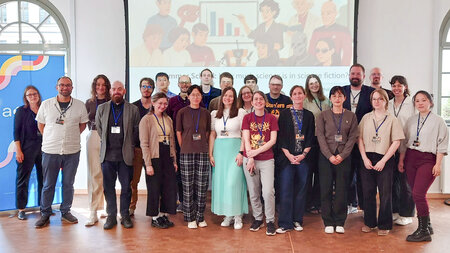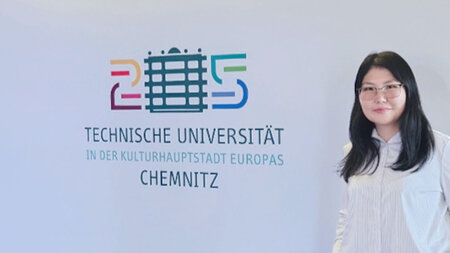Decisions of the Examination Board
Decision of 23.05.2025: Alternative examination formats according to §6(7) of the PO 2023 and according to §7(6) of the PO 2009 in the summer semester 2025
The following examinations will be offered in an alternative format:
Examination |
Planned
|
Alternative examination format |
| Empirical Economics I (repeat exam) (Empirische Wirtschaftsforschung I) |
Written exam 90 min | Oral exam 20 min |
| Empirical Economics II (Empirische Wirtschaftsforschung II) |
Written exam 90 min | Oral exam 20 min |
Decision of 14.11.2024: Alternative examination formats according to §6(7) of the PO 2023 and according to §7(6) of the PO 2009 in the winter semester 2024/25
The following examinations will be offered in an alternative format:
Examination |
Planned
|
Alternative examination format |
| Empirical Economics II (repeat exam) (Empirische Wirtschaftsforschung II) |
Written exam 90 min | Oral exam 20 min |
| Selected Problems of the History of Economic Theory: Production and Value Theory | Written exam 60 min | Oral exam 20 min |
Decision of 09.08.2024: Alternative examination formats as replacement
For the examinations Empirische Wirtschaftsforschung I (Empirical Economics I) and Empirische Wirtschaftsforschung II (Empirical Economics II), the module description stipulates written exams of 60 minutes each. However, instead, written exams of 90 minutes each will be held. This is mainly justified by the inclusion of a 30-minute practical part in the R programming language as part of the exam.
Decision of 23.05.2024: Permanent changes to the course and examination offerings
The following changes will be permanently implemented in the course and examination offerings:
- The lecture and exam "Empirische Wirtschaftsforschung II" will be replaced by "Empirical Economics II" in English starting summer semester 2024.
- The lecture and exam "Empirische Wirtschaftsforschung I" will be replaced by "Empirical Economics I" in English starting winter semester 2025/26.
- The 60-minute exam "Instrumente des Kapitalmarkts" (exam no. 61509) will be based on the course "Market Microstructure" starting summer semester 2024. A final exam for "Instrumente des Kapitalmarkts" will be offered in winter semester 2026/27. After that, the lecture and exam "Instrumente des Kapitalmarkts" will be replaced by "Market Microstructure" with the exam format: written exam 90 minutes.
Decision of 07.07.2023: Transitional arrangements for the recognition of courses for students under the old Study and Examination Regulations 2009
I. Recognition of the following courses optionally in Module 2 or Module 3:
- Economics of Inequality
- Innovation Economics
- Computational Economics II
- Selected Socioeconomic Problems of the Present
- Selected Problems of Methods in Economics
- Selected Problems of the History of Economic Theory
- Selected Problems of the Analysis of Complex Monetary Economic Systems
- Computational Economics I
- European Economy I
- European Economy II
II. Recognition of the course "Employment Theory" for "Work and Society".
III. Optional recognition of the following courses for "Work and Society" (compulsory area Module 3) instead of in the elective area in Module 2 or Module 3:
- Public Finance (formerly Public Finance I)
- International Economic Relations
- Competition Economics
- Money and Credit
- Advanced Microeconomics (formerly Microeconomics for Advanced Students)
- Systems Thinking and Simulation
- Selected Problems of Public Finance
- Production and Value Theory
- Theory of Economic Policy
- Business Cycles and Growth
- Economics of Inequality
- Innovation Economics
- Computational Economics II
- Selected Socioeconomic Problems of the Present
- Selected Problems of Methods in Economics
- Selected Problems of the History of Economic Theory
- Selected Problems of the Analysis of Complex Monetary Economic Systems
- Computational Economics I
- European Economy I
- European Economy II
IV. The courses "Mathematical Methods of Economics" and "Mathematical Economic Theory" (5 ECTS each) will be replaced by the course "Mathematical Models in Economics".
V. Renamed courses with identical content will be recognized. This regulation applies, for example, to:
- "Advanced Macroeconomics" for "Macroeconomics for Advanced Students"
- "Advanced Microeconomics" for "Microeconomics for Advanced Students"
- "Climate Economics" for "Environmental and Resource Economics II"





